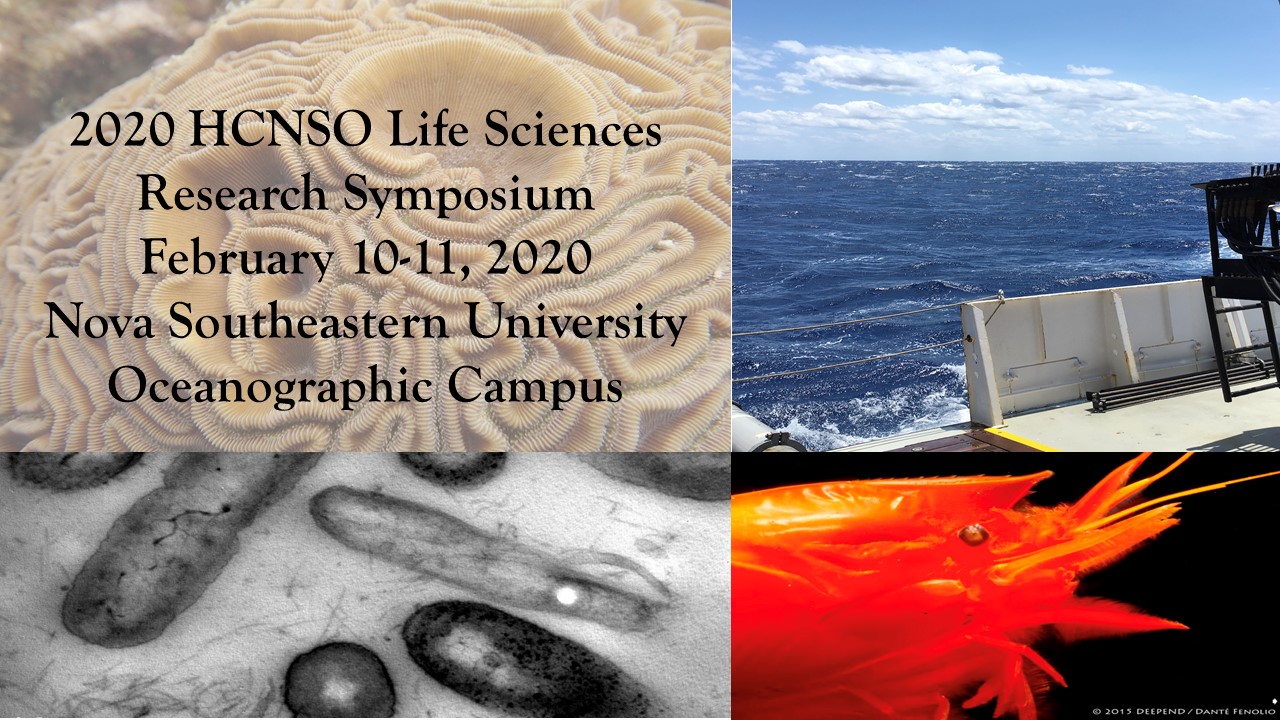Does host manipulation reach beyond the litter box and lab? Testing T. gondii's impact on wild hyenas
Location
HCNSO Guy Harvey Oceanographic Center Nova Southeastern University
Start
2-10-2020 1:30 PM
End
2-10-2020 1:45 PM
Type of Presentation
Oral Presentation
Abstract
Host-manipulating parasites are ubiquitous in nature, yet are chiefly studied in labs. Here, we report that fitness-related behavior in wild hyenas covaries with Toxoplasma gondii infection. Specifically, 1) infected hyena cubs approach lions more closely during behavioral observations, and 2) infected hyenas are marginally more likely to be killed by lions (vs. die from other causes). These findings accord with an infamous hypothesis that T. gondii’s manipulation of host boldness and/or ailurophilia is an extended phenotype that abets parasite transmission into definitive feline hosts (e.g. lions). Nonetheless, in hyenas (as in humans), the behavioral influence of infection might result from parasite traits that evolved to manipulate alternative intermediate hosts (e.g. rodents).
Our findings bolster growing evidence that T. gondii can influence fitness-related behaviors in its many natural hosts. Thus, a single species of unicellular protist potentially puppeteers diverse mammals and birds worldwide.
Does host manipulation reach beyond the litter box and lab? Testing T. gondii's impact on wild hyenas
HCNSO Guy Harvey Oceanographic Center Nova Southeastern University
Host-manipulating parasites are ubiquitous in nature, yet are chiefly studied in labs. Here, we report that fitness-related behavior in wild hyenas covaries with Toxoplasma gondii infection. Specifically, 1) infected hyena cubs approach lions more closely during behavioral observations, and 2) infected hyenas are marginally more likely to be killed by lions (vs. die from other causes). These findings accord with an infamous hypothesis that T. gondii’s manipulation of host boldness and/or ailurophilia is an extended phenotype that abets parasite transmission into definitive feline hosts (e.g. lions). Nonetheless, in hyenas (as in humans), the behavioral influence of infection might result from parasite traits that evolved to manipulate alternative intermediate hosts (e.g. rodents).
Our findings bolster growing evidence that T. gondii can influence fitness-related behaviors in its many natural hosts. Thus, a single species of unicellular protist potentially puppeteers diverse mammals and birds worldwide.


